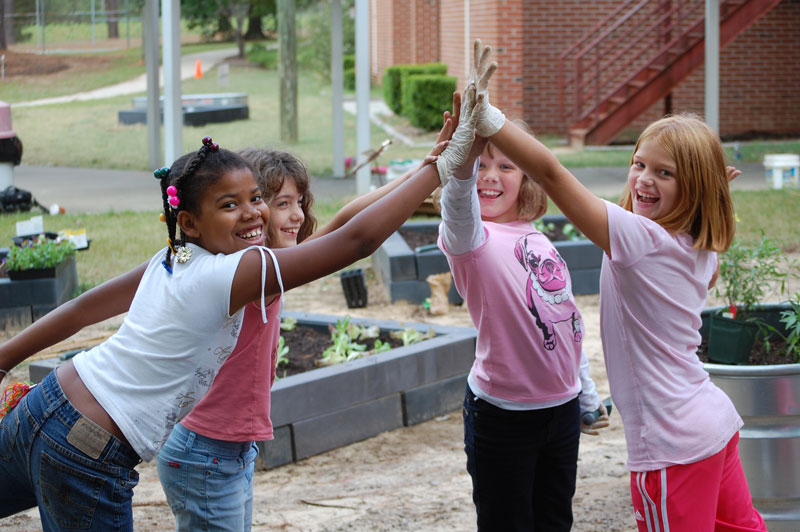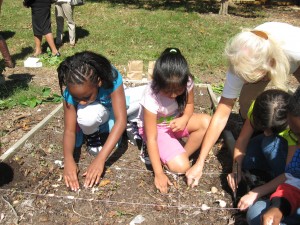Youth, Families & Communities
go.ncsu.edu/readext?233035
en Español / em Português
El inglés es el idioma de control de esta página. En la medida en que haya algún conflicto entre la traducción al inglés y la traducción, el inglés prevalece.
Al hacer clic en el enlace de traducción se activa un servicio de traducción gratuito para convertir la página al español. Al igual que con cualquier traducción por Internet, la conversión no es sensible al contexto y puede que no traduzca el texto en su significado original. NC State Extension no garantiza la exactitud del texto traducido. Por favor, tenga en cuenta que algunas aplicaciones y/o servicios pueden no funcionar como se espera cuando se traducen.
Português
Inglês é o idioma de controle desta página. Na medida que haja algum conflito entre o texto original em Inglês e a tradução, o Inglês prevalece.
Ao clicar no link de tradução, um serviço gratuito de tradução será ativado para converter a página para o Português. Como em qualquer tradução pela internet, a conversão não é sensivel ao contexto e pode não ocorrer a tradução para o significado orginal. O serviço de Extensão da Carolina do Norte (NC State Extension) não garante a exatidão do texto traduzido. Por favor, observe que algumas funções ou serviços podem não funcionar como esperado após a tradução.
English
English is the controlling language of this page. To the extent there is any conflict between the English text and the translation, English controls.
Clicking on the translation link activates a free translation service to convert the page to Spanish. As with any Internet translation, the conversion is not context-sensitive and may not translate the text to its original meaning. NC State Extension does not guarantee the accuracy of the translated text. Please note that some applications and/or services may not function as expected when translated.
Collapse ▲Information, resources and links on facilitating and supporting community and youth local foods programs. Materials range from youth-empowered projects, leader guides for engaging youth and community members with farm-to-school and community gardens, and other community-based local food tools and program examples.
The links below will direct you to resources, tools and programs on each of the specific topics
- Farm to School: Farm to School is a movement that strives to build a youth’s connection to healthy, local food through school gardening, farm field trips, hands-on cooking and nutrition and local sourcing of fresh fruits and vegetables to school cafeterias.
- Farm to Early Childcare Education (ECE): Farm to Early Childhood Education is a movement working to build pre-K children’s connection to healthy, local food through similar means as Farm to School in child care settings.
- Farm to Fork Camp: Farm to Fork Camp is a collaborative program between 4-H, FCS, and Agriculture to teach youth (8-18) where their food comes from and how to prepare meals using fresh items from the farm.
- Community Gardens: A community garden is ”any piece of land gardened by a group of people.” (North Carolina Community Garden Partners). Dig into the organizations and programs that support community gardens throughout North Carolina.
 North Carolina Cooperative Extension’s 4-H Youth Development Program has been linking youth to fruits, vegetables, meat and dairy animals and other agricultural systems for over 100 years.
North Carolina Cooperative Extension’s 4-H Youth Development Program has been linking youth to fruits, vegetables, meat and dairy animals and other agricultural systems for over 100 years.
- NC 4-H Grow for It Program focuses on plant-based education, emphasizing horticulture, agronomy, soil science and entomology
- NC 4-H Youth Livestock Program provides opportunities for youth to learn about livestock animals, including goat, sheep, beef and swine.
- NC 4-H Dairy Program offers learning experiences with Dairy Cattle.
- NC 4-H Poultry Program has numerous opportunities and materials to support youth poultry programs.
- The Food Youth Initiative (FYI) is a project housed at the Center for Environmental Farming Systems (CEFS), and carried out with many community partners, with the mission of envisioning and supporting the advancement of a just food system where youth envision and support the advancement of a just food system.

N.C. Cooperative Extension Family & Consumer Science Programs
- EFNEP (Expanded Food and Nutrition Education Program) – The youth component of EFNEP for school aged youth 5-19. Check out the website for program sites and information as well as tips and recipes.
- Supplemental Nutrition Assistance Program – Education – The goal of SNAP-Ed is to assist those eligible for food assistance to eat smart and move more.”

A group of school gardeners celebrating their gardening success!
Primary Contacts:
Liz Driscoll
4-H Youth Subject-Matter Specialist
Departments of Crop and Soil Sciences, Entomology and Plant Pathology and Horticulture Science
NC State University / N.C. Cooperative Extension
liz_driscoll@ncsu.edu / 919.513.7346
Remi Ham
Assistant Teaching Professor
Department of Horticultural Science
North Carolina State University / N.C. Cooperative Extension
raham@ncsu.edu / 919.515.5373



